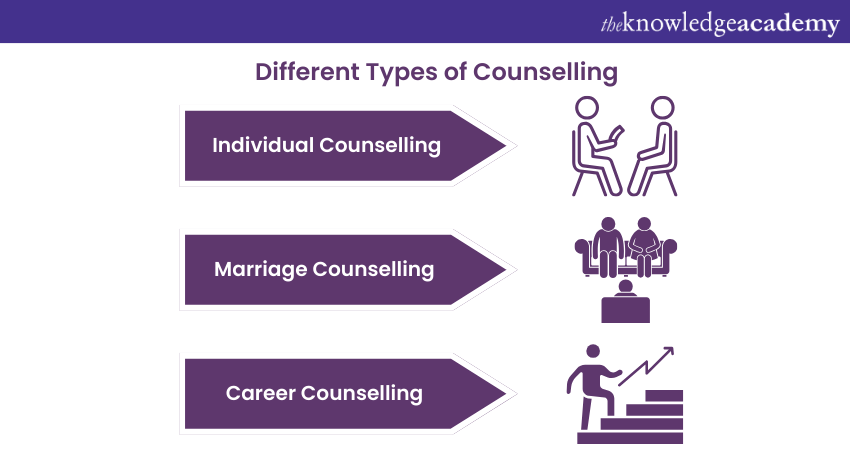Top Reasons Couples Choose couples counselling sessions to Heal
Wiki Article
Checking out the Benefits of Virtual Therapy in Modern Mental Healthcare
The rise of virtual therapy marks a substantial shift in psychological wellness care. It supplies enhanced ease of access, allowing individuals from diverse backgrounds to seek assistance without geographical restraints. Adaptability in scheduling accommodates differing lifestyles, while the convenience of home can promote openness. The implications of these modifications expand beyond mere convenience. The advancing landscape of therapy raises vital concerns about its lasting impacts on patient interaction and treatment end results.Boosted Availability for All
Typical therapy often offers obstacles such as geographical area and organizing problems, virtual therapy considerably improves access for individuals looking for psychological health support. By removing the requirement for physical traveling, virtual therapy enables customers from remote locations or those with wheelchair difficulties to get in touch with qualified experts. This mode of therapy can reach underserved populaces that might lack neighborhood mental health and wellness sources, thus dealing with variations in access to care. Additionally, virtual systems can deal with varied needs, supplying services in multiple languages and accommodating different cultural histories. Customers can engage with a wider range of specialists, offering them with options that align with their certain needs and preferences. This enhanced availability promotes an extra comprehensive setting, enabling people to look for assistance without the preconception usually related to in-person check outs. Generally, virtual therapy stands for a substantial innovation in making psychological wellness care much more obtainable to all.Adaptability in Organizing Procedure

As virtual therapy remains to acquire grip, its inherent adaptability in organizing sessions proves to be a significant benefit for numerous individuals. Unlike traditional in-person therapy, virtual therapy allows customers to select session times that ideal fit their personal and expert dedications. This adaptability fits those with demanding work timetables, family members responsibilities, or various other commitments that can make participating in physical appointments testing.
Additionally, clients can conveniently reschedule or readjust their sessions as required, minimizing the stress connected with inflexible appointment systems. The accessibility of different time slots throughout the week, consisting of evenings and weekends, better boosts accessibility. This versatility not just encourages uniformity in participation yet also fosters a higher dedication to the therapeutic procedure. Ultimately, the adaptability in scheduling sessions represents a transformative shift in mental healthcare, equipping individuals to prioritize their wellness without sacrificing other elements of their lives.
Comfort of a Familiar Setting
The convenience of a familiar atmosphere considerably improves the efficiency of virtual therapy for several clients. Taking part in therapy from the safety of their own homes permits individuals to really feel more comfortable, decreasing anxiousness that might come with traditional in-person sessions. This knowledge can help with open interaction, allowing clients to express their thoughts and sensations much more easily.The presence of personal things and the capability to manage their environments can add to a feeling of safety and relaxation. Customers typically report that remaining in a comfortable room allows them to concentrate much more on the healing process instead than the setting itself.
In addition, the informal nature of virtual sessions can aid liquify obstacles that might exist in a typical workplace setting, cultivating a much deeper connection with specialists. On the whole, the convenience of familiar environments plays an essential function in enhancing the restorative experience and performance for several people looking for psychological wellness support.
Broader Array of Therapeutic Choices
A broader series of restorative options appears via virtual therapy, enabling clients to accessibility different techniques that may not be possible in traditional setups. This flexibility enables people to check out diverse methods such as cognitive-behavioral therapy, mindfulness methods, art therapy, and also specialized interventions like trauma-informed treatment or dialectical behavior therapy.Customers can select from a more comprehensive spectrum of therapists, including those that specialize in particular niche locations or certain populations, enhancing the likelihood of locating an ideal suit. Virtual systems frequently supply accessibility to team therapy sessions, support areas, and workshops that may be geographically unavailable otherwise.
This range encourages clients to take part in their healing process according to their distinct preferences and needs, possibly boosting inspiration and dedication to therapy. As a result, the landscape of psychological health and wellness treatment ends up being more inclusive and versatile, satisfying a bigger range of private experiences and challenges.
Decreased Preconception Surrounding Therapy
Accessing therapy via virtual platforms adds to a significant reduction in the stigma traditionally related to mental health and wellness treatment. By providing a very discreet and private setting, virtual therapy allows people to seek help without the concern of being judged or determined. This anonymity charms to those that might otherwise be reluctant to seek in-person therapy due to societal assumptions surrounding mental health and wellness.Moreover, as the occurrence of virtual therapy boosts, it stabilizes the discussion around mental health, making it an extra appropriate component of day-to-day life. Individuals commonly really feel a lot more comfy discussing their experiences online, promoting openness and minimizing sensations of seclusion. The availability of these services also urges a wider group to engage with mental health sources, promoting a society of assistance instead of pity. Eventually, the surge of virtual therapy plays an important function in reshaping mindsets towards looking for help, adding to a much more approving society relating to mental wellness obstacles.
Cost-Effectiveness and Affordability

Reduced Session Costs
Lots of individuals looking for psychological health support discover that virtual therapy considerably minimizes session prices compared to standard in-person alternatives. The elimination of travel costs and pause job commonly adds to total cost savings. Furthermore, numerous virtual therapists supply competitive rates as a result of lower above expenses related to maintaining a physical workplace. This change in expenditure allows clients to accessibility high quality mental health services without the monetary pressure that may feature standard therapy. For many, this affordability makes it possible for extra regular sessions, which can improve therapy end results. As an outcome, virtual therapy not just equalizes accessibility to mental healthcare however also gives a sustainable economic model that lines up with customers' spending plans, making psychological health assistance much more possible for a larger audience.Increased Access Options
While traditional therapy typically offers logistical obstacles, virtual therapy considerably broadens access choices for individuals looking for psychological health treatment. By eliminating the requirement for traveling and enabling versatile scheduling, virtual therapy suits varied lifestyles and dedications. This ease of access is specifically beneficial for those in remote locations or with wheelchair challenges. Additionally, the cost-effectiveness of virtual therapy reduces economic strain, making psychological health solutions extra reachable. Several systems provide tiered prices or sliding scale costs, promoting affordability. Insurer progressively identify virtual therapy, further boosting its monetary accessibility. In general, virtual therapy not just broadens the extent of who can receive care but also addresses economic obstacles, making mental health support more comprehensive and obtainable for all.Boosted Connection of Care
Enhanced continuity of care arises as a substantial benefit of virtual therapy in modern-day mental healthcare. This strategy allows patients to keep consistent interaction with their therapists, no matter geographical barriers or organizing conflicts. relationship therapy. The flexibility of virtual sessions cultivates normal check-ins, which are essential for keeping track of progress and adjusting treatment prepares as requiredIn addition, electronic health and wellness records and telehealth systems facilitate seamless information sharing amongst treatment suppliers. This interconnectedness guarantees that all specialists associated with a patient's treatment are upgraded on therapy growths, bring about even more worked with and reliable interventions.
Clients often experience reduced stress and anxiety and enhanced interaction due to the ease of accessing therapy from acquainted environments. Such availability boosts adherence to treatment regimens, eventually improving results - virtual therapy. To sum up, virtual therapy not just bridges voids in mental health solutions however also strengthens the connection of treatment, a vital component of successful healing relationships
Often Asked Questions
Just How Does Virtual Therapy Make Sure Confidentiality and Privacy for Customers?
The current inquiry addresses the actions virtual therapy employs to secure client confidentiality. Utilizing encrypted systems, secure logins, and conformity with policies like HIPAA, virtual therapy assurances that sensitive details stays exclusive and unattainable to unauthorized individuals.Can I Switch Over Therapists Conveniently in Virtual Therapy?
Switching over therapists in virtual therapy is usually simple. Customers can connect their need for an adjustment via the platform, enabling versatility in locating a far better suit without the logistical challenges of in-person visits.What Modern technology Do I Required for Virtual Therapy Sessions?
To participate in virtual therapy sessions, a private generally needs a trusted net link, a computer or smartphone with a video camera relationship therapy and microphone, and accessibility to a safe video conferencing platform specified by their specialist.
Are Virtual Therapy Sessions as Effective as In-Person Procedure?
Current studies indicate that virtual therapy sessions can be similarly reliable as in-person sessions, relying on the person's preferences and scenarios. Elements such as comfort and ease of access might enhance the general healing experience for some customers.What Should I Do if I Experience Technical Issues Throughout a Session?
If technological concerns emerge during a session, one must calmly connect the trouble to the specialist, effort to reconnect, or switch to a back-up approach. Perseverance and flexibility are necessary in managing these interruptions.Report this wiki page